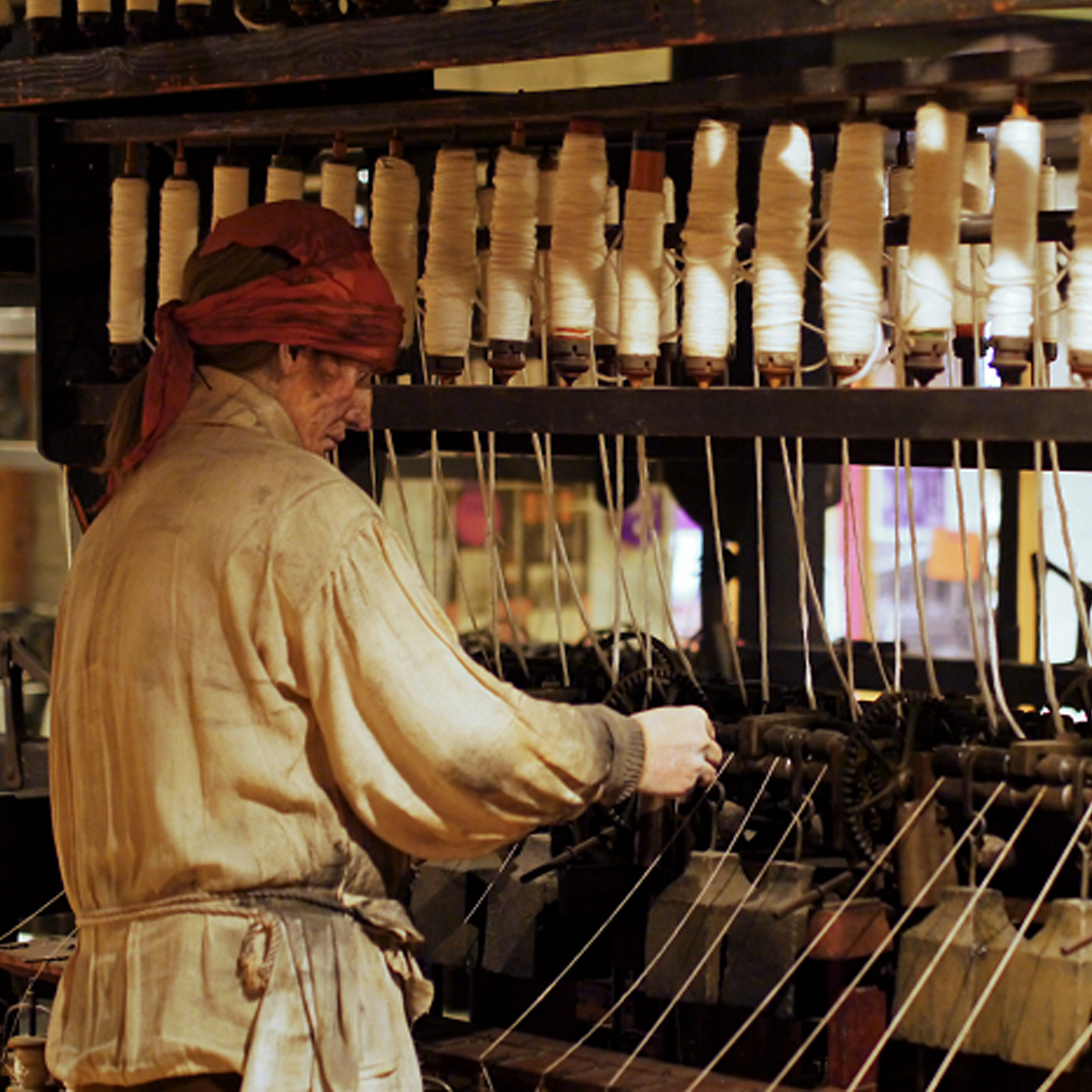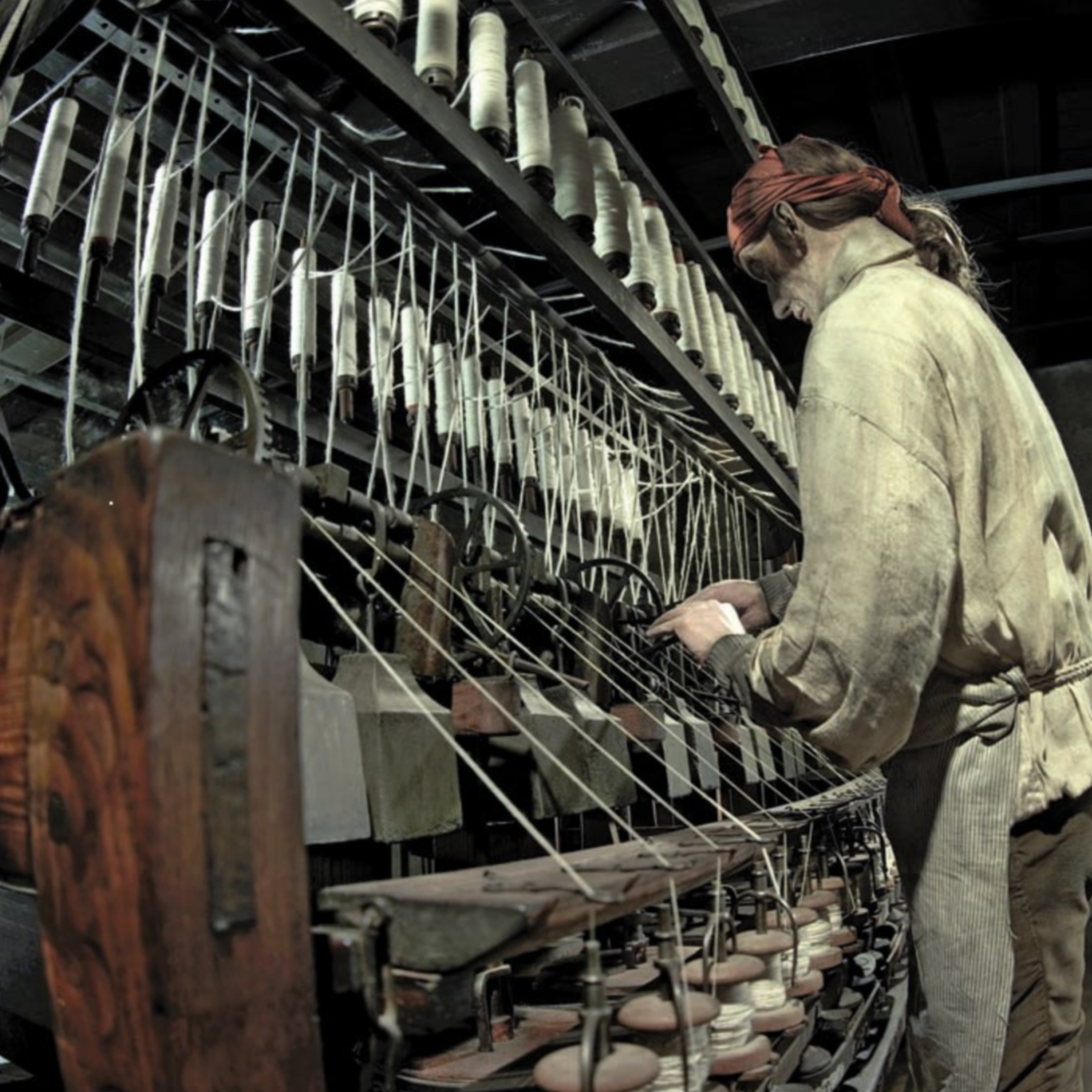Arkwright Waterframe
Description
Richard Arkwright (1732-1792) from Preston invented the water frame and is regarded as the father of the factory system. The legend goes that he was apprentice to a barber and wig maker in nearby Kirkham when he overheard merchants talking. He learned that there was a huge demand for Indian ‘calicos’ which had been popularised with cheap imports in the 17th century by the English East India Company but were now prohibitively expensive due to the Calico Acts. To protect the domestic woollen and linen industries the 1701 & 1721 Calico Acts had imposed a high import tariff plus a ban on using cotton cloth for clothing and household goods. By the late 1760s it was clear that the domestic industry needed to produce its own cotton goods to meet this demand and a great fortune awaited the inventor of a machine which could spin cotton quickly and easily.
Arkwright teamed up with a clockmaker called John Kay (no relation to the John Kay of flying shuttle fame) and by 1769 they had a workable hand powered machine that could spin four strands of cotton yarn. Arkwright paid for the patent and continued developing his idea of producing a powered spinning machine capable of spinning multiple strands. In 1771 Arkwright had built his first mill in Derbyshire with rows of his new spinning machines mounted on large wooden frames powered by the mighty River Derwent. He was soon producing strong cotton yarn and making his fortune, while the machine became known as the 'water frame' after its power source.
Details
- Accession number
- LANMS.1975.83.1
- Category
- Industrial History
- Collection name
- Platt Collection of Early Textile MachineryDesignated Textile Industry Collection
- Materials
- wood
iron
brass
leather
On display
50 Objects Exhibition at Helmshore Mills Textile Museum 6 June - 31 October 2025. Search www.lancashire.gov.uk for Helmshore Mill opening times.

